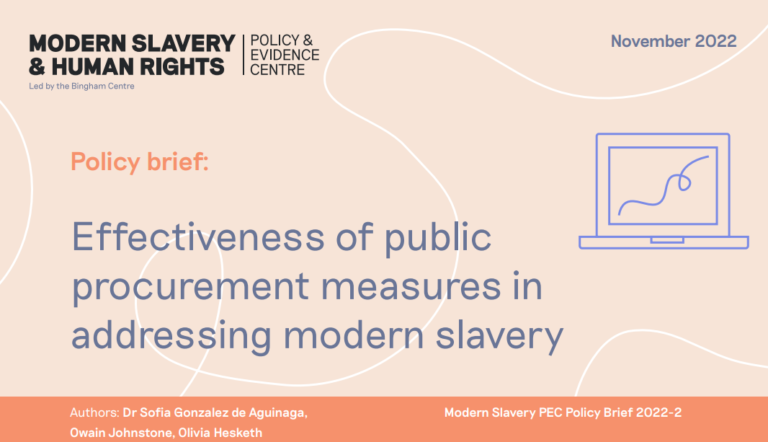This Modern Slavery PEC Policy Brief is the third in a series of Policy Briefs that assess the evidence base on the effectiveness of different regulatory interventions to address modern slavery in global supply chains, a key research priority for the Modern Slavery PEC, as set out in our Strategy. This Brief assesses the evidence base on the effectiveness of relevant public procurement laws, policies and practices (collectively ‘public procurement measures’) at addressing modern slavery. There is ongoing interest from policymakers, businesses and civil society in the potential for public procurement – the process by which the public sector purchases goods, services and works from the private sector – to be used as a lever to address modern slavery in supply chains. Action on public procurement was recognised as one of four ‘principles for tackling modern slavery in supply chains’, launched in 2018 by the ‘Five Eyes’ group (UK, US, Canada, (Australia and New Zealand). This Policy Brief focuses on public procurement measures in countries similar to the UK where governments have made a stated commitment to addressing forced labour in supply chains. These include: the Five Eyes group, the G7 (Canada, France, Germany, Italy, Japan, UK, US) who issued a joint statement on this subject in October 2021, and relevant European and Scandinavian countries where there is emerging good practice.

